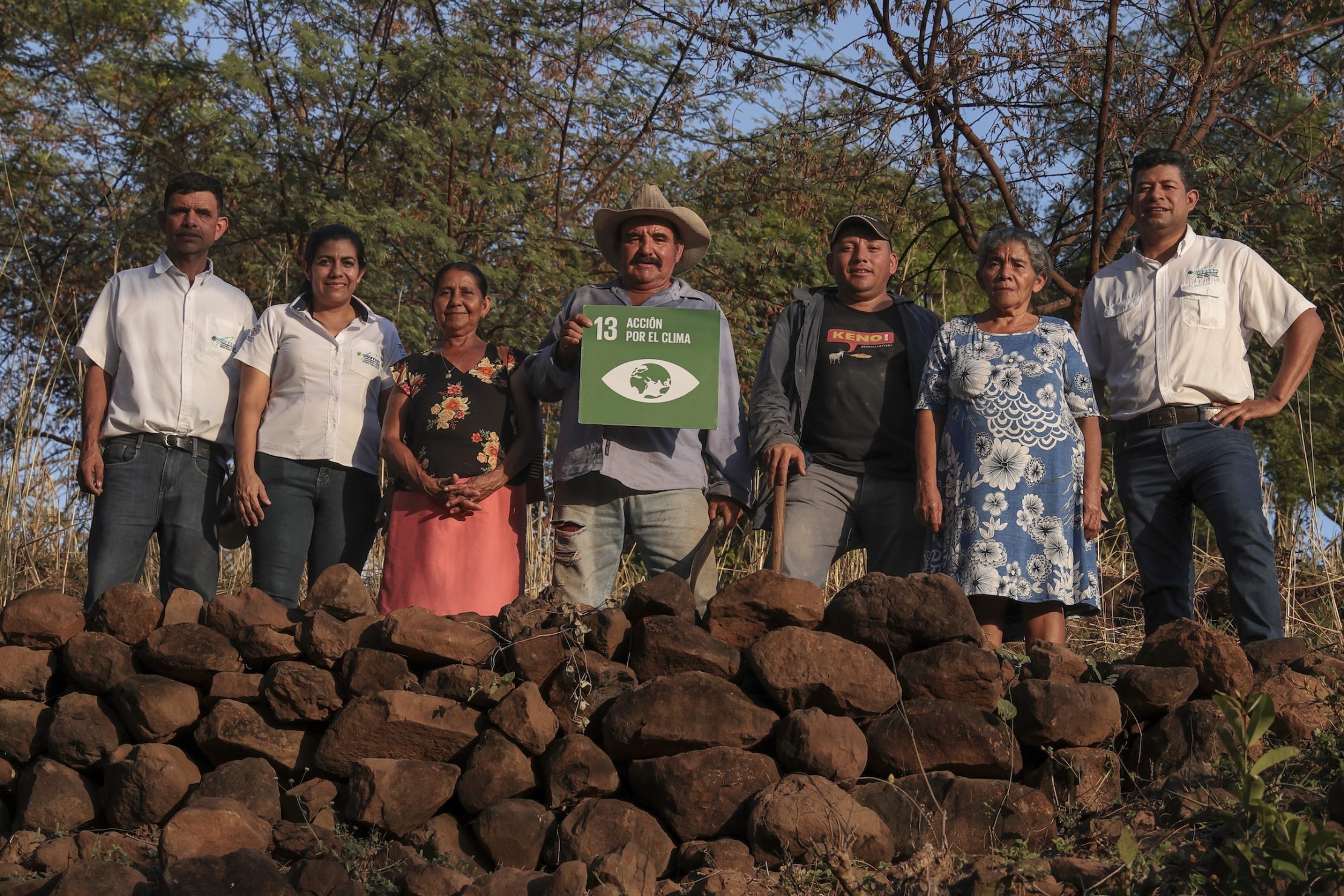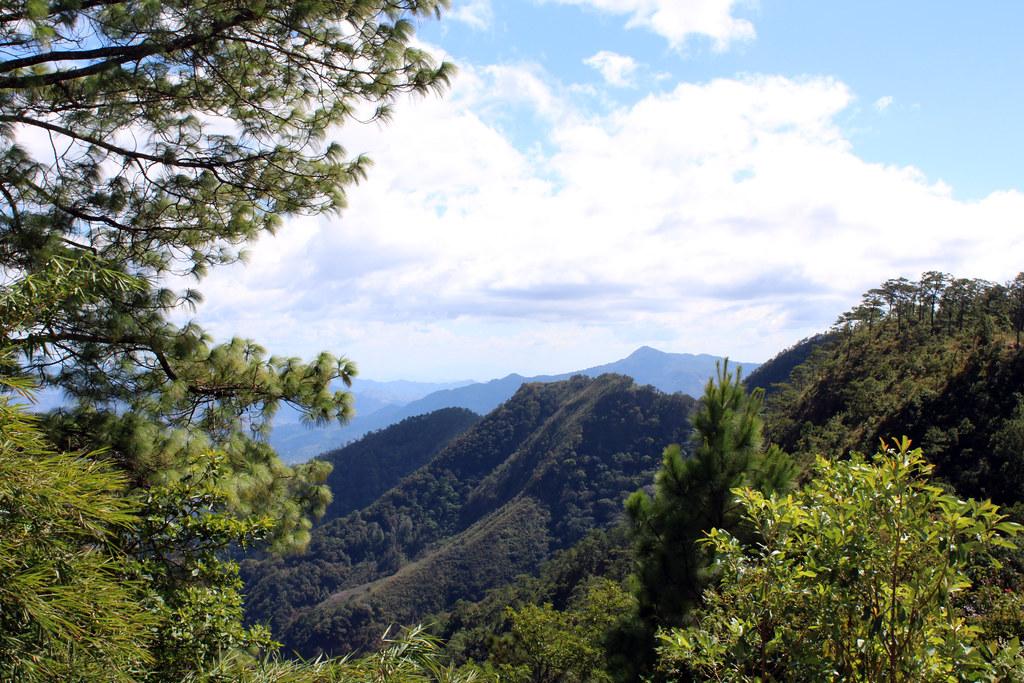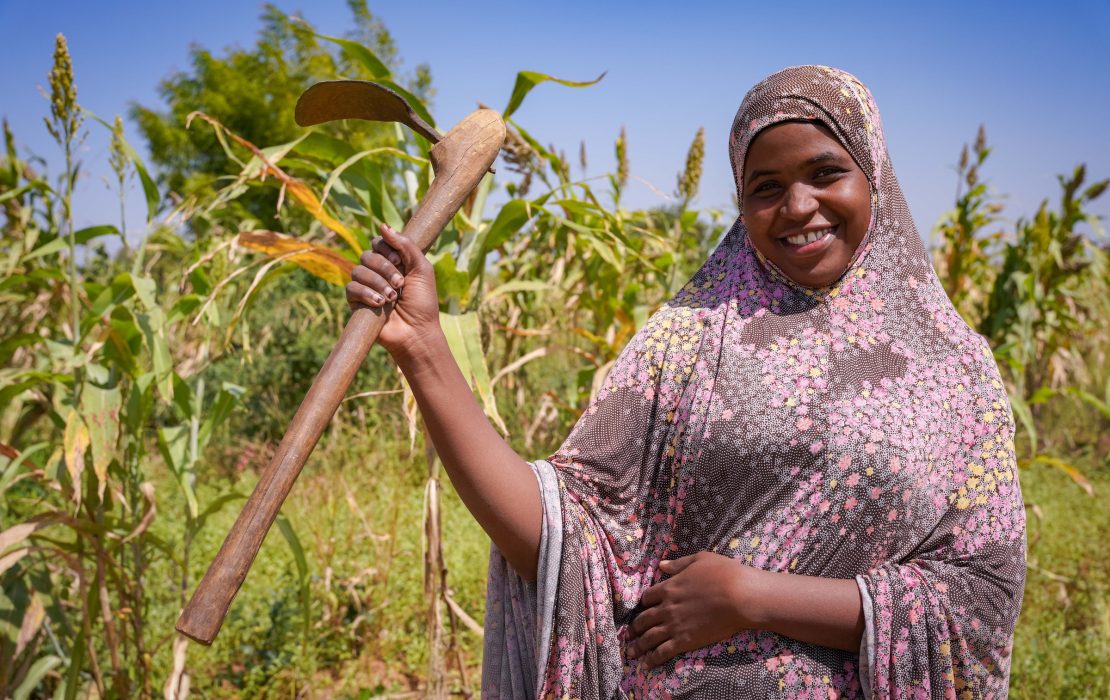
Located on the shores of the Pacific Ocean, El Salvador is the smallest country in Central America. The country is especially vulnerable to the impacts of climate change, such as sea level rise, floods and more frequent and intense extreme weather events.
Just last year, storm Julia damaged over 400 homes, destroyed 7,000 hectares of crops, and left an estimated 180,000 people without enough access to food. In 2020, storms Amanda and Cristóbal caused losses and damages worth over USD 28 million. Beyond their immediate impact, the devastation caused by such events reduces the country’s ability to recover from existing ongoing social and economic crises.
Climate change impacts everyone, but it impacts each person differently. For climate action to be truly effective, the needs and voices of everyone must be included, from the design, development, and finally the implementation stages of climate policies and plans. This means involving climate activists, women, youth, and indigenous peoples and local communities as much as engaging technical experts, scientists, and policymakers.
With this in mind, UNDP El Salvador launched the Climate Voices Campaign last year to promote dialogue and intergenerational reflection on climate change.
The campaign consisted of a series of videos giving voice to men and women from different regions of the country. People of ages ranging from 26 to 90 years old spoke about their perception of how the climate has changed throughout the years, and how it's impacting them.
These are the voices of farmers, students, entrepreneurs, and the elderly. They are stories of those who have lived through extreme weather events, as well as those whose futures will be heavily impacted by climate change.
They express concern about environmental degradation, deforestation, loss of biodiversity, and increases in risks of flooding and droughts, which ultimately impacts their sources of income and food.
René
René, aged 44, is an engineer, entrepreneur, and tourist guide. He lives in Suchitoto, a city located near the Suchitlan Lake, the largest in El Salvador, famous for its fishing and tourist activities. His whole life, René has been fascinated by the migratory birds that fly over the lake, such as the ‘azacuanes’, which offer a beautiful natural spectacle to those who visit. But he is concerned about how migratory patterns seem to be affected by the increase in temperatures and droughts.
“The natural spectacle of the Suchitlán ecosystem is affected by what happens on the planet. Before, the passage of the azacuanes was like an exact clock and always at the same time, but in recent years everything seems to change and pollution affects the cycles and the chances of survival of the animals in the lake”, he says.
Ricardo
Ricardo, aged 51, has worked all his life as a farm labourer, mostly in coffee plantations around the area of San Salvador Volcano, northwest of the capital city. However, in the past years, the climate and landscapes around the volcano have undergone a dramatic transformation. He is concerned about the growth in urban populations.
“Before, one could see the city, the houses, and the buildings far away. Now, they are almost on top of us. They take land from the coffee plantations.”
As an example of the impacts of climate change on his livelihood, he mentioned:
“Before, coffee and fruit trees flowered at a predictable time, but now you cannot tell accurately. In some years, coffee trees flower twice and the yields are low. This is bad for us.”
Reyna
Reyna, aged 72, has lived her whole life in Santa Tecla, near San Salvador city. She is concerned about the differences she has perceived in the climate over the years.
“This used to be a cool city. During half of the year, you needed warm clothes because a cool wind came from the mountains. But now, that is not the case. You rarely have to wear warm clothes. It’s hot, and summer months are not like they used to be: the heat is too much and it is suffocating.”
Reyna also mentioned the increase in the amount of rain and floods in rainy months, and how the loss of forested areas causes fears of landslides. Urban expansion, she said, is erasing the mountains and hills. She remembers the tragic incident of 2001, when a landslide buried a community of Santa Tecla during an earthquake, taking hundreds of lives.
Roberto
Roberto, aged 81, is a retired journalist and civil servant. He has witnessed and followed very closely for decades the environmental news and the changes that have occurred in his community of Ahuachapán, in western El Salvador.
“It was easy to understand how the weather worked. The October winds marked the end of the rainy season, but now the winds are late, until November and December, and, in any case, it continues to rain until well into December. It is worrying”.
Roberto worries about the unpredictability of the weather lately: “If we don't have good crops, we don't have food. When the food situation and the economy deteriorate, that’s a threat to what we all eat.”
He also notes the economic risk and the vulnerability that elderly populations face with more extreme heat.
“Everything gets expensive, and that is another concern that is added to the heat that affects all of us, especially those of us who are already elderly and already have to worry about how the heat will affect us.”
Lilian
Lilian, aged 92, lives in San Salvador, the country’s capital, but grew up in Apaneca, a region well known for its rich flora, fauna, and natural beauty.
She remembers fondly her childhood times between Apaneca and San Marcos Lempa, in the south, located on the shores of the Lempa River, the most important course of water in the country.
She remembers how, in her childhood, she could see all kinds of wild animals, including howler monkeys and deer, whose populations have suffered a dramatic decrease over time and can rarely be seen in natural environments any more.
“Today, everything would seem untrue, because in no part of our country are there monkeys living in freedom.”

Photo: UNDP El Salvador/Julio Roberto Díaz
The videos of the El Salvadorean campaign were disseminated through UNDP social networks, reaching more than 1.5 million people. This created engagement with UNDP’s audiences, who also shared their own perceptions and concerns about climate change impacts.
The voices of the citizenship in El Salvador, but also all over the world, through initiatives like Dear World Leaders and People’s Climate Vote, tell us that the impacts of climate change are real and are already happening. People from every corner of the globe are demanding concrete and urgent action to address the root causes of this crisis.
To adapt and be more resilient to these increasing impacts of climate change, El Salvador is working to strengthen its disaster recovery mechanisms. With support of UNDP’s Climate Promise, the country has also advanced its climate policies and commitments, presenting an updated action plan in in January 2022 – known as a Nationally Determined Contribution (NDC) – with renewed and more ambitious climate targets under the Paris Agreement. The government is now developing plans to put these pledges into action, ensuring the broad participation of society.

